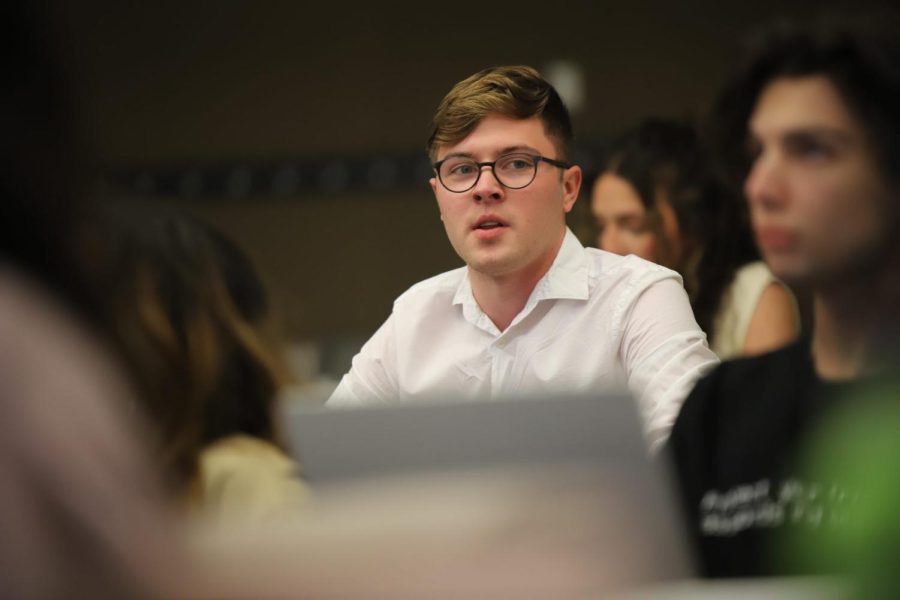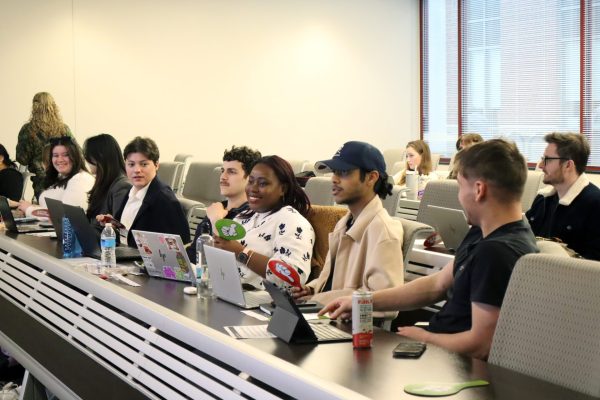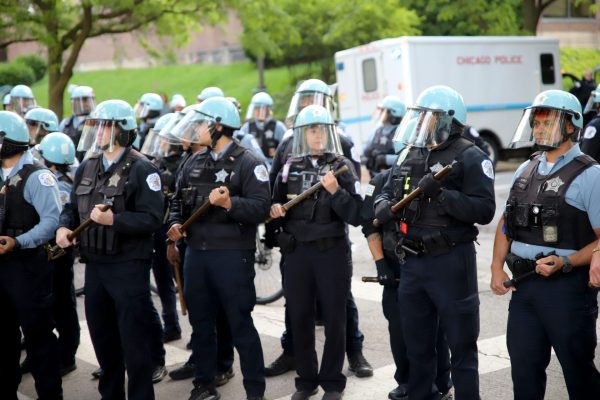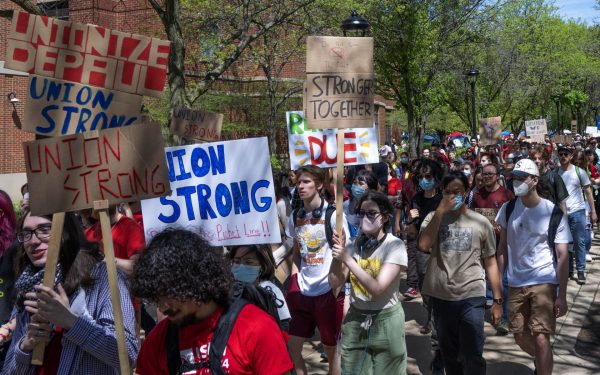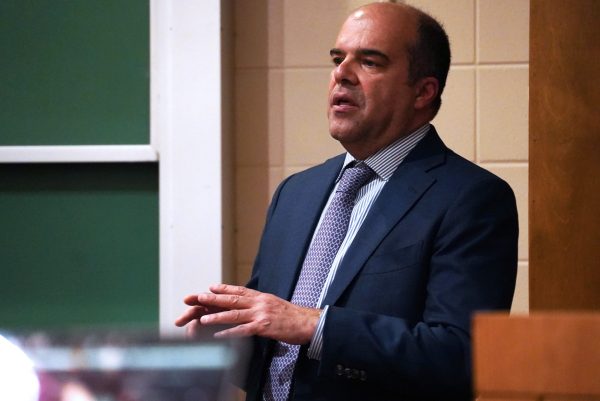SGA expands voting requirements, encourages student turnout
Avery Schoenhals, SGA executive vice president for facility operations encourages competition in SGA elections after running unopposed.
In response to low voter turnout and student engagement in their elections, the Student Government Association (SGA) general body voted in favor of changing and expanding the current voting requirements at their meeting on Feb. 16.
The new requirements give students with double majors or dual degrees the opportunity to vote for both college senators that represent them, such as senator for the School of Music and senator for the College of Education, rather than just the senator that represents their primary major.
“Tonight is a perfect example of calls for an expansion in voting access,” SGA President Kevin Holechko said. “This is one of the core suggestions we constantly get to increase voting.”
Holechko said that Information Services (IS) reached out to SGA’s faculty/staff advisor, Courtney James, after updating their system, allowing them to expand voting access. James left the decision to SGA’s general body, which voted in favor of the proposal.
“For IS, it’s something that they’ve been limited to in the past because it’s not their primary job to help run SGA elections,” Holechko said. “Their job is to handle technology for the university. Anytime the school recommends additional ways for the students to have a buy-in and an increased ability to do shared governance though, we’re usually always in favor of it.”
The vote will be given to IS as feedback. Holechko believes if the general body’s consensus is taken into account, it is likely that the changes will impact SGA’s spring election. This upcoming election will include all SGA positions except senator for first year students, and senator for transfer students.
“It’s a matter of whether or not [IS] has the outreach to do some of the initiatives we suggest,” said Magoli Garcia, SGA Vice President and junior. “We’re really excited to see what other initiatives are going to be pushed for in this spring election, but I think we’re also just excited to see how this is going to work out.”
During the spring election, all SGA members that currently have a role or position must run again to maintain or change their position for the next academic year. Avery Schoenhals, SGA executive vice president for facility operations and sophomore, believes the broader voting requirements could help increase voting rates while incentivizing students to vote in the first place.
“I think a part of the recent low voter turnout is because lately, students have felt burnout and haven’t been as plugged in since the pandemic,” Schoenhals said. “Voter turnout prior to the pandemic has shown to be higher, so we’re just trying to find new ways to adapt to having students know that we’re a resource to them.”
Schoenhals believes another advantage to the voting requirement expansion could be increased competition in SGA elections, leading to better representation for student groups and more ideas shared across candidates.
Schoenhals was appointed to his previous role as senator for the College of Communication after it was left vacant when the former elected senator resigned and ran unopposed the following election season. In his current role, he once again filled the spot after the former SGA member in the position resigned.
“Honestly, I would’ve loved competition,” Schoenhals said. “You are fully welcome to come run and be a part of this and to interact with the administrators while representing student issues.”
Holechko has also seen the rising trend of uncontested elections but said this was not always the case. Although he remembers heavily contested elections from previous years in SGA, Holechko believes the pandemic is one of the reasons for the changes.
“In that transition from online to resuming in-person, there were people having to work that adjustment out and not being able to commit to a club that takes up as much time as SGA,” Holechko said.
Even with the possible changes to voter requirements broadening election turnout, Garcia wants to see more pushes for in-person events to encourage voter participation in SGA events. Her ideas include more tabling events, increasing visibility with posters on campus and reinstating in-person Meet the Candidates events outside of the usual classroom SGA meets in.
“It’s not that we don’t do a perfect job of broadcasting ourselves across campus, it’s that there’s always room for improvement,” Garcia said.
Schoenhals agrees that the voting changes will be beneficial to turnout rates but that in-person engagement needs to make a comeback. By moving SGA election publicity away from the current emphasis on only online promotion through social media and email pushes, he hopes to encourage students to possibly do more than cast their vote.
“Students should know SGA is a resource for them, and they can come to their representatives for anything, but they are also fully entitled to run for a position,” Schoenhals said. “You don’t have to just bring your concerns to us. If you want to run, if you want to be a part of this organization and use this platform to advance the things your constituents want, do it.”


